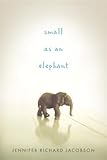

Arianna Hazard – Known as “Ari” in the book the main protagonist who wants to get into Carter Middle School.Janna – One of the children’s legal guardians.O’Neil – A social studies teacher at Ari’s school (Eastland Elementary) The novel is ideal for a booktalk featuring strong characters.Paper Things, by Jennifer Richard Jacobson Jacobson’s realistic fiction novel provides a rich context for dialogue about recognizing the signs of homelessness and providing resources to students and families. Bulletin of the Center for Children’s Books Here’s hoping it inspires more of the same in its readers.Īri’s struggle to stay afloat as the bottom drops out of her world is compelling.readers will be glad to see her successfully negotiate her divided loyalties and find a safe home.

Paper Things treats honesty, compassion and generosity as things we can never have too much of in life. It is her mature sense of her own needs that informs the adults who love her and helps them to understand how they might build a future together. Through Ari’s resiliency, Jacobson introduces readers to the precarious and frightening life of a homeless elementary-school student who holds fast to her dreams and the only family she knows.

In this poignant view of one child’s experience with homelessness, Jacobson deftly shows how easily it can happen, an insidious downward spiral with heart-wrenching consequences. A thoughtful and moving exploration of homelessness. Her perceptive first-person voice neatly captures her conflicted loyalty to Gage but also to Janna, as well as her valiant attempts to make an impossible situation work out. This novel is a definite must-purchase for a library’s collection.Īri's plight vividly illustrates the myriad consequences of homelessness, and the adults around her who should be picking up on the numerous clues to her situation seem oblivious.

Jacobson tells a story that is authentic and relatable to a wide audience of readers. It is well written, with a moving plot, and is told in an authentic voice that pulls the reader in. Small moments pack big emotional wallops. Jacobson elevates her book beyond “problem novel” territory with an engaging narrator who works hard to be loyal to her brother-and to her mother’s memory. Jacobson’s story is poignant but never preachy. This novel will engender empathy and understanding of a serious and all-too-real problem.


 0 kommentar(er)
0 kommentar(er)
